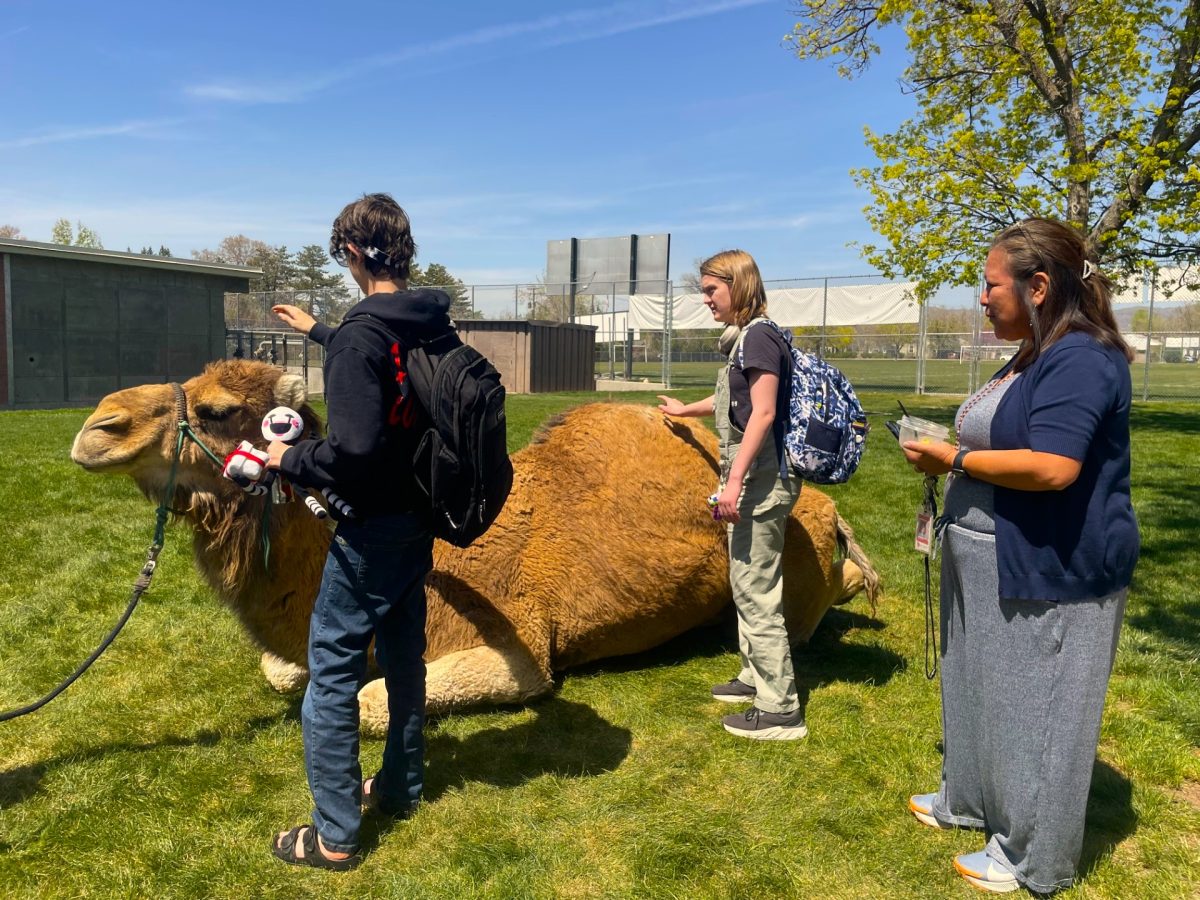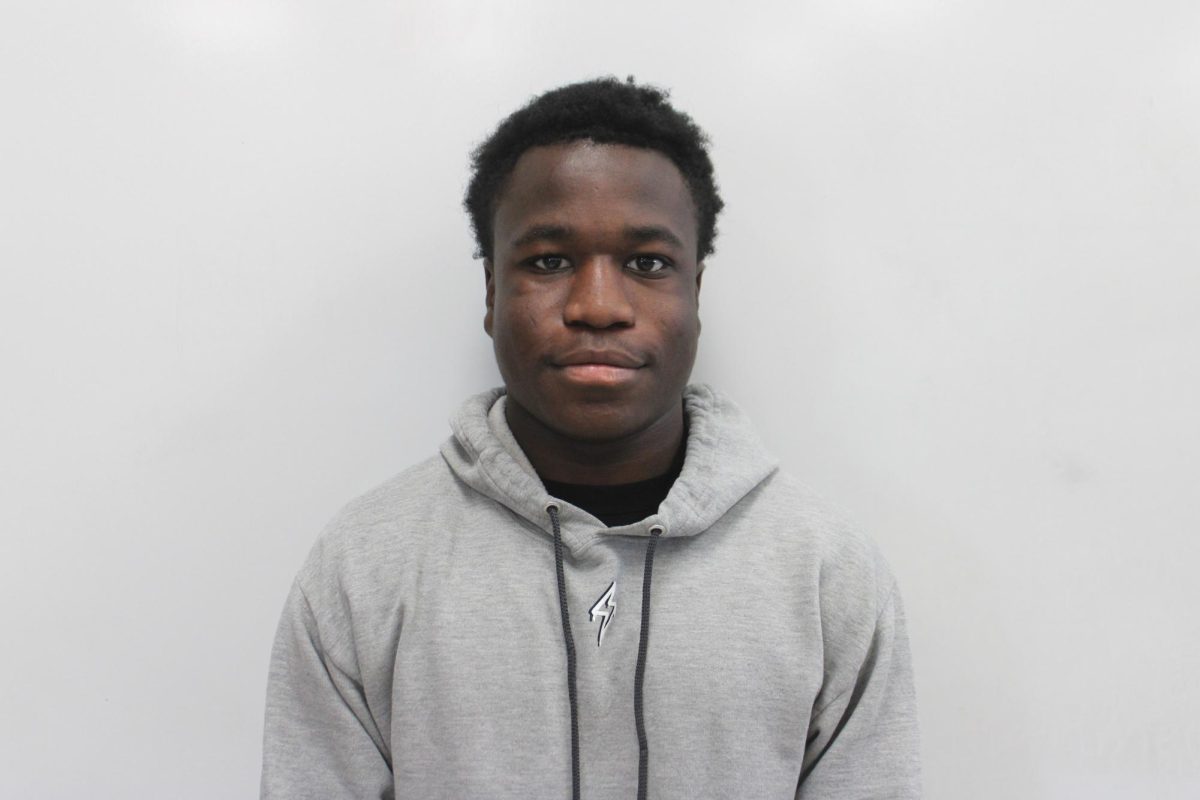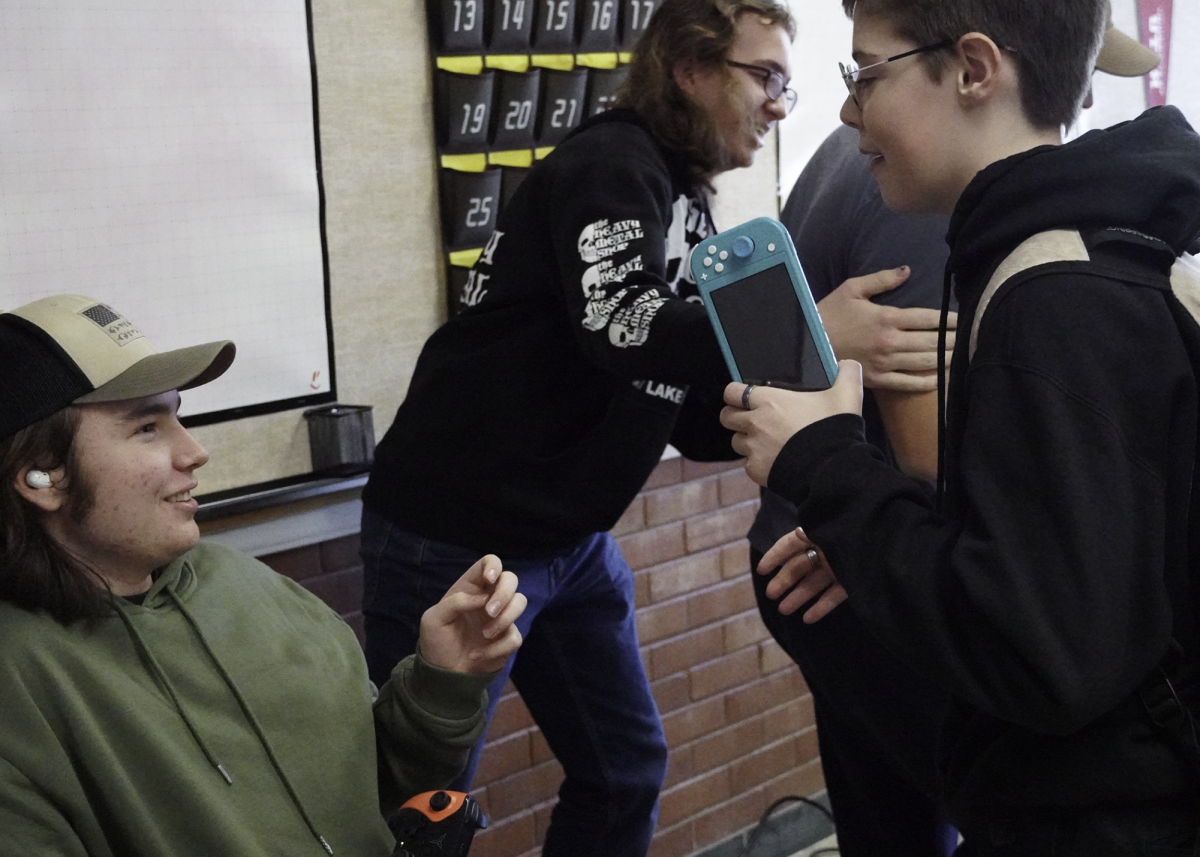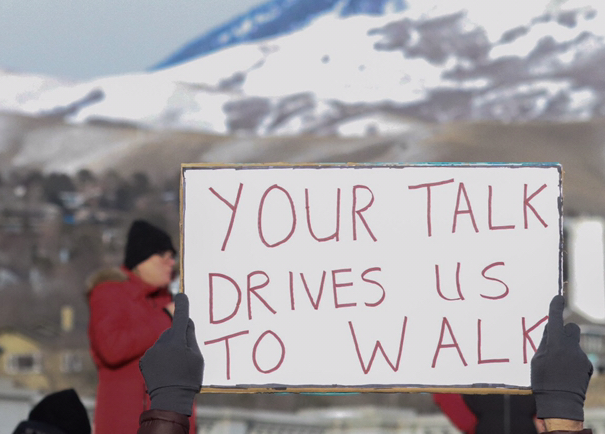“Enough is Enough:” Teachers Rally for the Respect They Deserve
March 1, 2022
Teachers from across multiple districts gathered at the Utah State Capitol on a frigid Tuesday, Feb. 22 afternoon, all chanting the resounding cry: “enough is enough.”
The “Let Teachers Teach” rally was sponsored by Salt Lake, Park City, Granite, Jordan, and Canyons Education Associations and was largely in response to proposed legislation from the 2022 Utah State Legislative session which would require teachers to get “approval” of lesson plans and would also allow taxpayer funds to be used to support school vouchers for charter schools.
Speakers at the rally emphasized that these bills were a threat to academic freedom and would limit conversation within the classroom.
Supporters for teachers and public education who attended hoped to get across the message to the Utah legislature that teachers are trained professionals who should be given the respect and resources to do their job. They fear recent regulations and requirements impede that ability and diminish important levels of respect.
Teachers at the rally represented Highland High as they joined in the echoing chants and applause during the impassioned speeches.
Sarah Lea, a mathematics teacher at Highland, shared what brought her and other teachers to attend.
“When this time during the year comes, [the legislature] is proposing new bills, and this year there seemed to be a lot of bills that were either micromanaging teachers or taking funding away or putting more on our plate than we’ve ever seen before,” Lea said. “We just felt like enough was enough: that we needed to make a presence, let them know that we didn’t approve of the bills that they were proposing, and hoped that they would look at it a little more closely and go another way.”
Heidi Matthews, president of the UEA and a speaker at the rally, referred to actions—and oftentimes lack of action—on the part of the Utah legislature as “roadblocks” towards teachers having the capacity to achieve.
“[They] aren’t getting us closer to what we’re for” Matthews said. “We have to focus on what we are for, which is: funding so that all students have opportunities, retaining our educators at all levels in our schools, and giving them the time and resources that they need to be successful and be able to be the best they can be for their students.”
What teachers also seem to be rallying against isn’t just the physical implications of specific legislation itself, but the undercurrent of disrespect for educators within it.
Teachers are professionals who are specifically trained to help students succeed in their classrooms, unlike those running legislative sessions who are pushing for a level of control that many attendees find to be inappropriate especially given their objective lack of training in the area.
Major talking points at the rally include that the voice of Utah educators has been ignored and that current proposed legislation not only adds to teachers’ already immense workload but calls into question their professional integrity.
Like many other speakers, Matthews heavily emphasized the legislation at hand while speaking at the rally.
“We’ve had to spend so much time this legislative session just staving off bad bills, which are kind of cookie-cutter legislation that we see happening across the nation,” Matthews said. “[These bills] pit parents against teachers, heap on workloads [and require teachers] to show all their lesson plans for every day of their lives, which is not what good teaching is. It’s ridiculous and insulting.”
Teacher workload has been a concern within Utah’s public education system, especially in recent years regarding the COVID-19 pandemic and has extended to chronic understaffing and burden across schools. In fact, a 2021 state audit found that Utah’s new teacher turnover is 42% (~20% higher than the national average).
Ultimately, Matthews said that teachers want to see a change that requires a basic sense of respect from the legislature in order to let them do what they are trained to do: teach to the best of their abilities, with the best interest of the children in mind.
“I think the sentiment among education and educative supporters is that ‘enough is enough,’” Matthews said. “We need to focus on what’s going to get the best possible education system and that means making the necessary investments.”




























